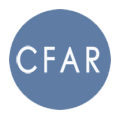Study Groups
Lacan encouraged the formation of work groups known as ‘cartels’, usually consisting of four members and an additional ‘plus one’, someone chosen by the group as being particularly suitable for giving a direction to the work, helping with problems and contributing with their supposed knowledge.
Naturally, the plus one’s function would be bound up with transferential issues, but Lacan thought that this could in fact prevent such issues from blocking the work of the initial group itself. Many people find the ‘cartel’ style of work fruitful, and CFAR members and trainees often form such groups. However, other ways of working may be favoured, with no particular criteria as to the number of participants or the way of organising the work. CFAR encourages all such groups, and they can be an invaluable accompaniment to other areas of psychoanalytic training. Participants in a group may wish to study a text in detail, but also to go through and explore further ideas emerging from seminars and lectures. The most important factor is the wish of the participant to elaborate a question or some form of work.
CFAR offers study groups the facilities of its library, with the newly acquired PEP archive, and also the possibility to co-ordinate with other interested parties. If a trainee or member seeks to find colleagues interested in working on a particular theme, they can contact Julia Carne, who has kindly offered to facilitate the setting up of study groups.
